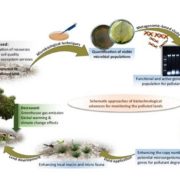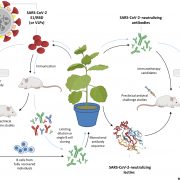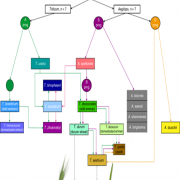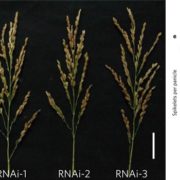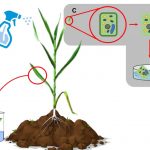The greenhouse gas impacts of converting food production in England and Wales to organic methods (Nature Comms)
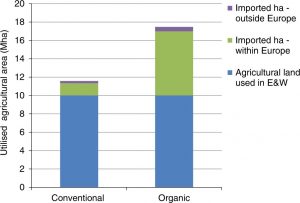 Many discussions about organic food production are dominated by dogma rather than pragmatism. Nevertheless, here’s a useful report that examines the impact of organic farming methods in England and Wales on greenhouse gas (GHG) emissions. Are the well-documented lower yields offset by differences in how the food is produced? Smith et al. suggest not: that when calculated per unit of food, organic results in greater GHG emissions, mainly because the yield penalty must be made up elsewhere. The authors look at all factors affecting net GHG flux, including soil carbon sequestration, production of nitrogen fertilizer, transport, and flame weeding of organic carrots (note: they look at meat and dairy foods as well as plant-based foods). Interestingly, because yields are relatively high in England and Wales as compared to places where the shortfall would be made up, there would need to be a five-fold increase in the amount of overseas land cultivated for food imports. The authors also point out that shifting agricultural production elsewhere simply means moving its inherent impacts, such as decreased biodiversity, elsewhere. Nature Comms. (Summary by Mary Williams) 10.1038/s41467-019-12622-7
Many discussions about organic food production are dominated by dogma rather than pragmatism. Nevertheless, here’s a useful report that examines the impact of organic farming methods in England and Wales on greenhouse gas (GHG) emissions. Are the well-documented lower yields offset by differences in how the food is produced? Smith et al. suggest not: that when calculated per unit of food, organic results in greater GHG emissions, mainly because the yield penalty must be made up elsewhere. The authors look at all factors affecting net GHG flux, including soil carbon sequestration, production of nitrogen fertilizer, transport, and flame weeding of organic carrots (note: they look at meat and dairy foods as well as plant-based foods). Interestingly, because yields are relatively high in England and Wales as compared to places where the shortfall would be made up, there would need to be a five-fold increase in the amount of overseas land cultivated for food imports. The authors also point out that shifting agricultural production elsewhere simply means moving its inherent impacts, such as decreased biodiversity, elsewhere. Nature Comms. (Summary by Mary Williams) 10.1038/s41467-019-12622-7



